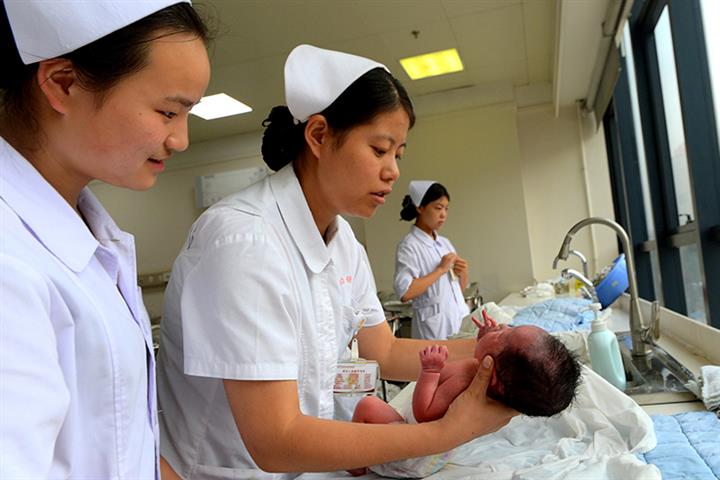 China’s Urbanization Growth Rate Fell to 26-Year Low Last Year
China’s Urbanization Growth Rate Fell to 26-Year Low Last Year(Yicai Global) June 10 -- China’s urbanization has entered a transitional phase, with the rate of increase falling to a 26-year low last year. Experts said the focus in future will not be on population figures, but on improving the quality of urban areas.
Last year, China added 12.05 million people to its urban population count and increased the urbanization rate by 0.81 percentage points, the slowest gains for both figures since 1996.
The country’s rural population fell below 500 million for the first time in nearly 70 years in 2021, dropping by 11.57 million to 498.35 million, Yicai Global calculated based on publicly available data.
During the reform and opening-up period, a large proportion of China's agricultural workers moved to cities to find jobs, and the urbanization rate soared from 17.92 percent in 1978 to 64.7 percent last year. But while the urban population base has kept on expanding, the annual growth rate has seen a year-on-year decline since 2017.
The government’s rural revitalization strategy has narrowed the gap between urban and rural areas in recent years, thus reducing the incentive for farmers to head to the cities for work, according to Dong Yuzheng, director of the Guangdong Academy of Population Development. The pandemic has also had an impact on the movement of people since 2020, he added.
In the next two decades, the rate of urbanization is expected to keep rising, but at a slower pace. Indicators reflecting the quality of urbanization will become increasingly important, such as the proportion of migrant workers settling in cities and the population movement among different cities, Feng Kui, deputy director of the Central Economic Committee of the China Democratic League, told Yicai Global.
In the future, the population movement in urbanization will change from a single direction to multiple directions. For example, migrant workers will return from the big cities where they work to towns near their villages, and some counties will have the opportunity to develop into medium-sized cities, Feng added.
Ding Changfa, associate professor of economics at Xiamen University, also said that it is important to boost the quality of urbanization in the future, such as improving housing, education and medical systems, so that migrant workers can blend in as soon as possible. This will also be conducive for the development of local services and manufacturing industries, Ding said.
Editors: Dou Shicong, Tom Litting